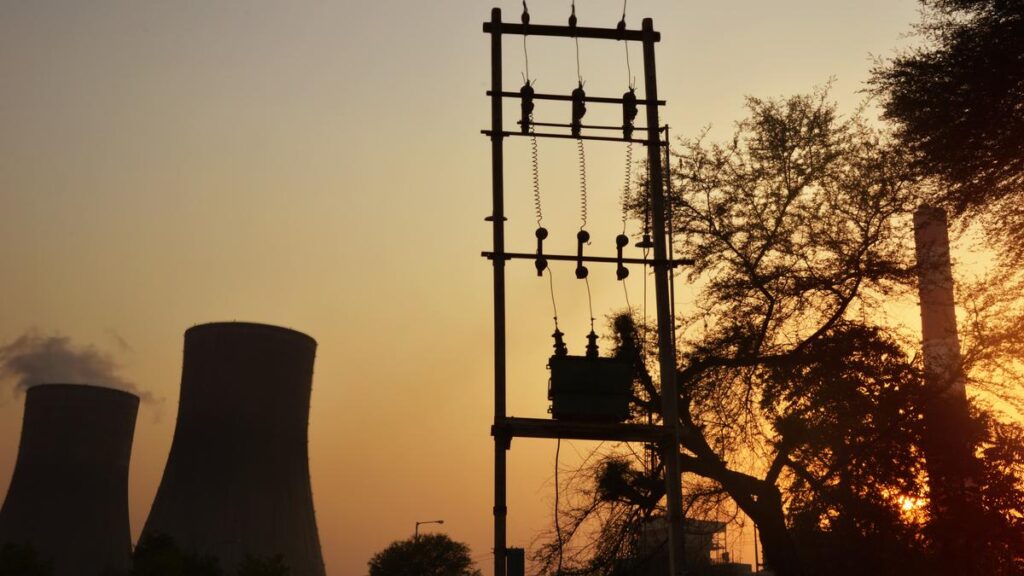
FGDs are an additional piece of equipment required to be retro-fitted in TPPs to cut harmful sulphur dioxide emissions resulting from burning coal.
Representational image of a thermal power plant.
| Photo Credit: Getty Images/iStockphoto
The Union Ministry of Power will wait for the Central Pollution Control Board (CPCB) to decide on whether flue gas desulphurisation (FGD) units should be mandatory for all coal-fired thermal power plants, Union Power Minister Manohar Lal Khattar said in a response to a question from The Hindu at a press conference on Tuesday (June 10, 2025).
On the June 4, The Hindu had reported on a meeting in April involving a high-powered committee of experts, chaired by the Principal Scientific Advisor, Ajay Sood. The group recommended that India do away with its decade-long policy of mandating equipment, including FGD units, in all coal-fired thermal power plant units (TPPs).
While 92% of India’s 600 TPPs, spread across about 180 coal plants, haven’t yet installed FGD units, the recommendation exempts about 80% of them from installing such equipment. So far, the government has granted three extensions since 2017, the latest being in December 2024, for plants to comply by 2027-2030.
FGDs are an additional piece of equipment required to be retro-fitted in TPPs to cut harmful sulphur dioxide emissions resulting from burning coal. Sulphur dioxide emissions can also hover in the atmosphere and form aerosols of sulphates that, on the one hand, can somewhat temper the heat from global warming, but also exacerbate particulate matter pollution and respiratory diseases. It is estimated that the current installation cost of such equipment is about ₹1 crore per megawatt (MW) of installed power capacity.
“Scientific institutions such as CSIR (Council of Scientific and Industrial Research), IIT (Indian Institute of Technology) Delhi have studied this. The sulphate aerosols from these coal plants aren’t to the extent that they affect human health…it is less than 5%. On the contrary, it is necessary that some of it remain in the atmosphere. If it is too less, it can increase warming,” Mr. Khattar said.
“That said, the CPCB is looking at this and hasn’t come to a conclusion. We will implement anything only after examining their verdict. About 97,000 MW of power will be added, and implementing FGD means an additional expense of ₹97,000 crore. We have to consider this carefully. Neither should health be harmed, nor people face increased tariffs, nor warming increase. You must have read about the thousands of lives lost in Europe from heatwaves,” he added.
As The Hindu had reported, the committee, according to the minutes of the meeting viewed by The Hindu, will “recommend” to the Power and Environment Ministers that only power plants located in a 10 km radius of the National Capital Region, and cities with a population of over one million, are required to install FGD units. These are called Category A plants. There are 66 such plants, and only 14 of them have installed FGD units. All these plants are required to comply by 2027.
Those in a 10-km radius of ‘Critically Polluted Cities’ or ‘Non Attainment Cities’, called Category B plants, would be eligible for exemption on a “case by case” basis, upon a joint review by the Central Electricity Authority or the CPCB. There are 72 such plants, with only 4 having installed FGD units. These plants have a deadline of 2028.
The remaining 462 plants come under Category C. Thirty-two of them have installed FGD units. These plants have a 2029 deadline. Over 600 units in categories A and B could be additionally exempted if they were 20 years and older.
“The key common point in these studies is that, fitment of FGDs in all TPPs in India is not necessary to comply with the NAAQ (National Ambient Air Quality) standards whose compliance is essential to safeguard public health. While all TPPs must comply with the December 2015 stack emission standards for PM pollution and freshwater consumption, the SO2 stack emission standards can be relaxed to ensure that they are in conformance with the NAAQ standards which are notified by CPCB, keeping in mind the human health and other aspects. This way, TPPs may be able to comply with these standards without fitting FGDs. Since the existing NAAQ standards (for ambient SO2) must be complied with, this change will not affect human health in India,” the committee had concluded.
Published – June 11, 2025 12:11 am IST

